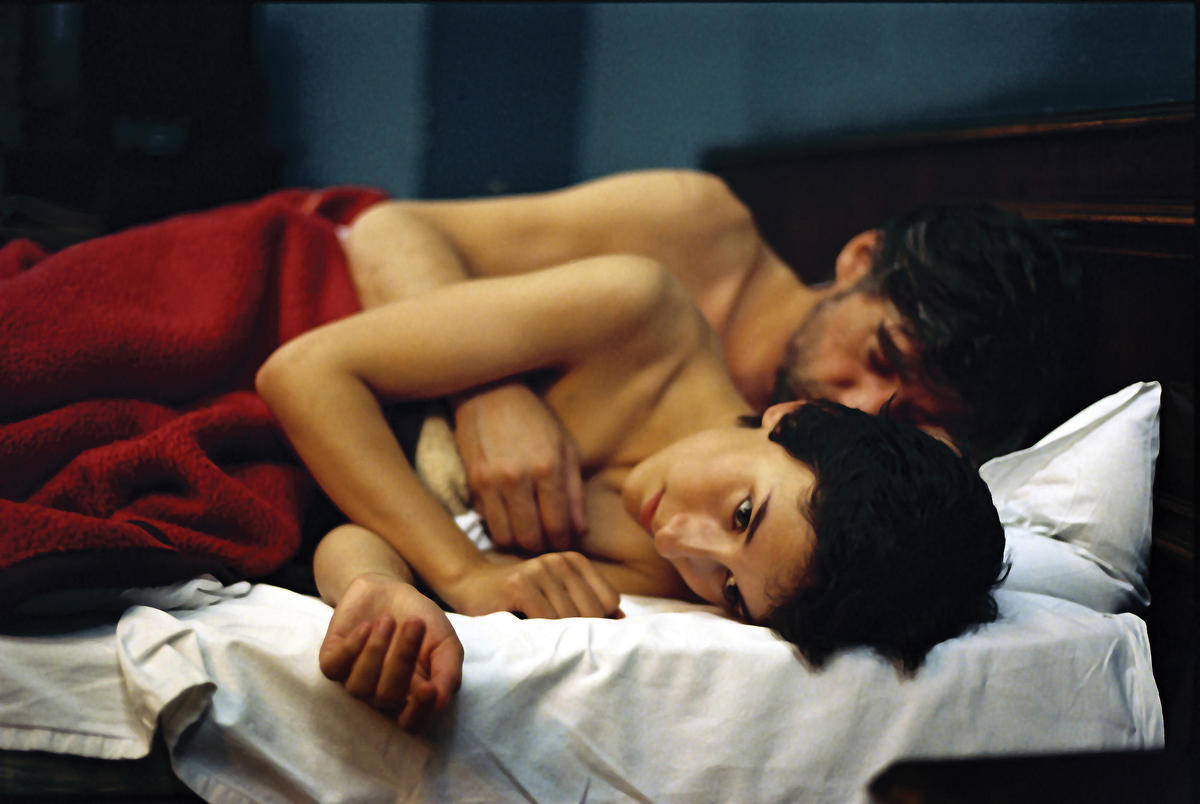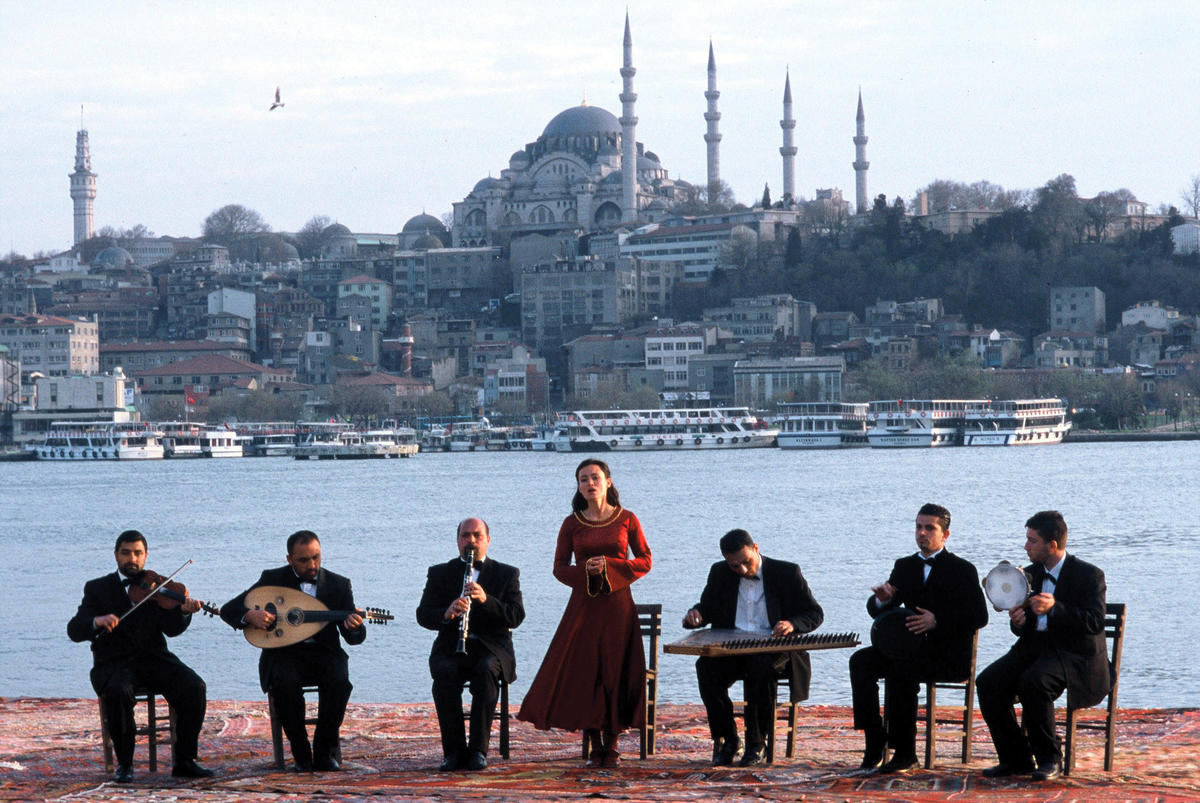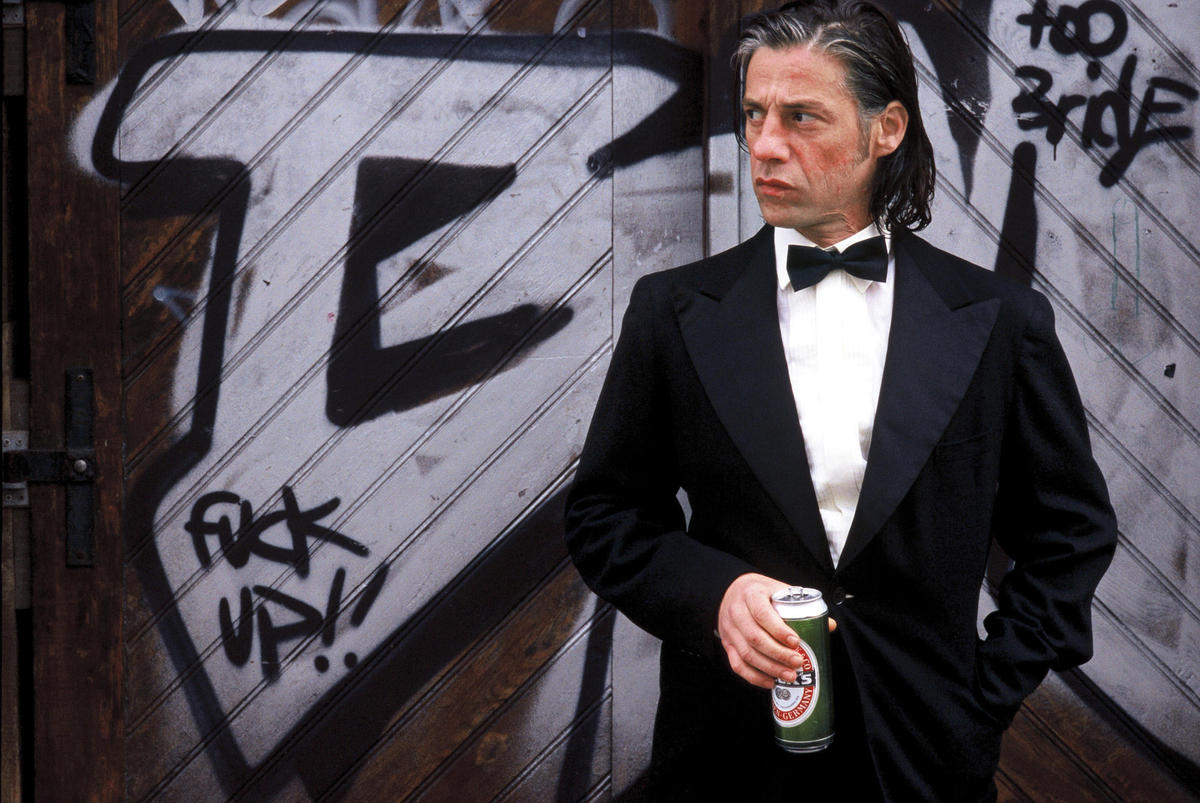
A man in his mid-forties sits behind the wheel of an old Mercedes Benz. His expression is both lethargic and empty from alcohol. Cut. The camera follows his excursion from a bird’s eye view. Then — without warning — he drives full throttle against a wall. Head-on collision.
This opening scene of the new film by Fatih Akin, a Turkish director who lives in Hamburg, sets the overriding theme of the story: the lack of a way out. Cahit drives against a wall because he cannot come to terms with the death of his wife and no longer sees a point to life. Sibel, a young Turkish woman with a hunger for life, wants to free herself from the reins of her family. Her mother watches passively as her father rejects his own daughter. In the hospital, Sibel meets Cahit. This chance encounter becomes the twist of fate which connects the two. Sibel and Cahit enter into a marriage of convenience, sharing a flat together which inevitably has its consequences.
In Akin’s film — winner of the coveted Golden Bear at this year’s Berlin International Film Festival — the inability to articulate one’s innermost feelings, results in several incidents of violence. Love only becomes apparent when expressed in terms of jealousy, fear in the form of rage, and the desire for closeness in sadomasochistic love scenes. One of the strongest episodes in the film takes place at the end, when one night in Istanbul, Sibel takes out her pent-up rage and despair on some male passersby, who in turn beat her to the point of nonrecognition. But she continues to stand up, screaming after them in a rage, before finally collapsing after being stabbed by one of them with a knife — a proud, honest yet bitter declaration on the bankruptcy of life.

But despite the dramatic storyline, Head On never loses its light touch. Instances of slapstick and even burlesque appear frequently. One may regard Akin’s filmic language and ostensible superficiality as critically as one likes, but there is no denying that he has achieved an entertaining film which effectively paints a portrait of the young Turkish generation shuttling between Hamburg and Istanbul — a generation caught between family tradition and the search for individual expression and the blueprint for life. And he does so without ever pointing fingers.
With tongue firmly planted in cheek, he tracks macho behavior while examining themes of honor and family. And without offering explanations, he blends the brutal reality of the alcoholic Cahit with the lulling, lyrical melodies of a Turkish music group posed in front of a picture-postcard idyll in Istanbul. Over the course of the film, this group and their music are periodically spliced into the action, like short pauses. Their songs carry Head On up to its timeless final moment in which tradition and modernity seem to touch one another at a point where it is no longer possible to differentiate one from the other.
Head On, 2004. Directed by Fatih Akin (Germany). 121 Min._
